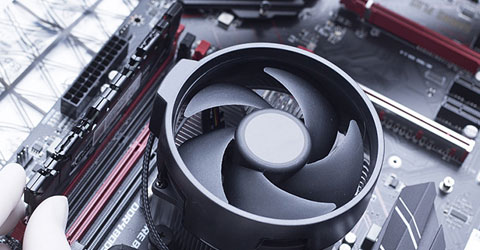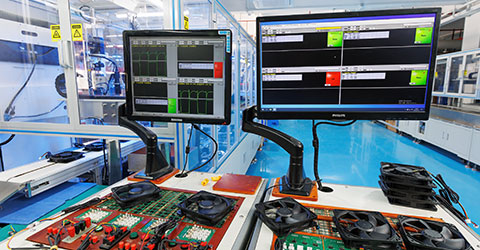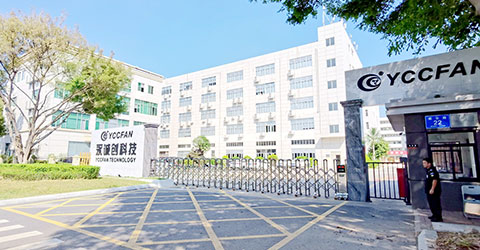Why Is My Cooling Fan So Loud in My Car?
If you've noticed your vehicle's cooling fan sounding louder than usual, you're not alone. A loud cooling fan is a common issue that can arise due to various factors. While some noise is entirely normal, especially in hot weather or when the air conditioning (A/C) is in heavy use, there are times when the noise could signal an underlying issue. Whether it's an obstruction, mechanical malfunction, or electrical failure, understanding the source of the noise is essential for maintaining your vehicle’s performance and ensuring a smooth, quiet driving experience.
In this guide, we’ll walk you through the common reasons your cooling fan may be louder than usual, how to identify the cause, and what steps to take to address the issue.
Normal Loudness of Cooling Fans
Why Electric Cool Fans Can Get Loud
Electric cooling fans are designed to run at high speeds, which can make them more noticeable under certain conditions. If you’ve noticed your fan sounding louder than usual, it's likely due to external factors like high temperatures or heavy use of your air conditioning (A/C). On hot days or when the A/C is working overtime, the cooling fan works harder to maintain the proper temperature for both the engine and A/C system. As the fan increases its speed to cool things down, the noise level naturally rises. This is a normal and expected part of how the cooling system operates.
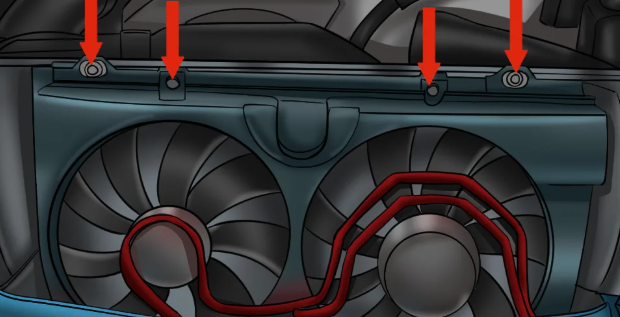
Cooling the Engine or A/C System
During hot weather or when you're using the A/C heavily, the cooling fan plays a crucial role in regulating the temperature by pushing air through the radiator or condenser. To handle the extra heat, the fan must run at higher speeds, leading to more noise. If you find yourself driving on a particularly warm day or with the A/C cranked up, the cool fan will likely be working harder, and you may hear a noticeable increase in sound. This is just the cooling fan doing its job to keep your engine and A/C system cool, and there’s no need for concern.
No Airflow at Idle: Cooling Fan Noise is Normal
When your car is idling at a stoplight or parked, you may notice the cooling fan sounding louder than when you're driving. This is because, at idle speeds, there’s no natural airflow through the radiator to cool the engine. Even though the engine still generates heat, the lack of motion means the micro cooling fan has to work harder to maintain a safe temperature. Without forward movement to push air through the system, the micro fan's noise level increases as it compensates for the reduced airflow. This is a normal occurrence and a typical function of the cooling fan to ensure your engine stays cool, even when the car isn’t moving.
Potential Causes for a Loud Cooling Fan
High Temperatures and A/C Load: How They Impact Your Cooling Fan
When the temperatures rise or your air conditioning (A/C) is working hard, your car’s cooling fan has to work overtime to keep both the engine and A/C system at the right temperature. To manage the extra heat, the fan increases its speed, which naturally leads to more noise. If you're driving on a hot day or using the A/C extensively, it’s normal for the fan to sound louder as it operates at higher speeds to maintain optimal cooling. So, don’t worry—this is simply the fan doing its job!

Mechanical Issues: Why Your Cool Fan Might Be Noisy
Worn Clutch (Mechanical Fans)
In vehicles with mechanical fans—especially rear-wheel-drive models—a worn or seized fan clutch can cause the fan to spin too quickly, producing a loud, plane-like noise. The clutch is responsible for engaging and disengaging the fan depending on the engine's temperature. When the clutch is worn or gets stuck, the fan continues to run at high speeds, leading to increased noise.
Worn Bearings
Over time, the bearings inside the cool fan motor may wear out, especially if the fan has been in use for a long period. This wear can lead to growling, grinding, or rattling sounds. If you hear these noises, it could be a sign that the fan motor or its bearings need attention, as the extra friction can create unwanted noise.
Bent or Broken Blades
If the cool fan blades are bent, broken, or damaged (often from debris or wear), they can throw the fan off balance. When the fan is out of balance, it struggles to rotate smoothly, which produces excessive noise. In addition to causing noise, damaged blades can also make the fan less efficient at cooling the engine.
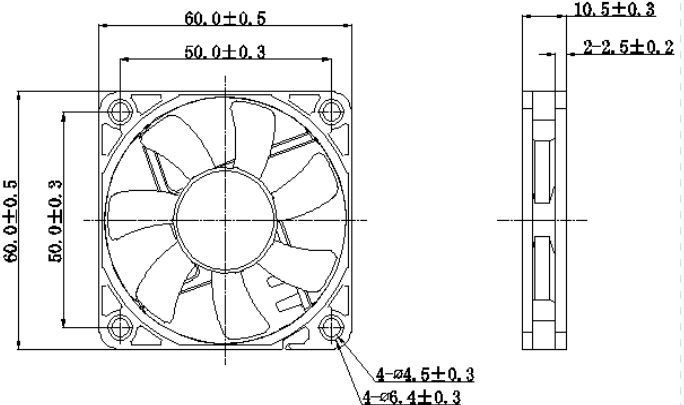
Fan Obstruction: How Debris Affects Cooling Fan Performance
Debris
Leaves, dirt, or other foreign objects can get caught in the fan blades, causing an imbalance or direct contact that leads to rattling or clattering sounds. If your fan is making unusual noises, it might be worth checking for any debris stuck in the cooling fan area. Clearing out any obstructions can restore normal operation and quiet the fan.
Electric Micro Cooling Fan Malfunctions: Common Issues That Lead to Noise
In electric cooling fans, various malfunctions can cause them to produce unwanted noise. If your fan is making unusual sounds, the problem might lie with the motor, control module, or other components of the system. Understanding these common issues can help you identify and resolve the source of the noise:
Failing Motor or Control Module
A malfunctioning motor or faulty control module can cause the electric cooling fan to run at full speed unnecessarily, leading to a constant hum or whining sound. This could indicate that the motor is failing, or the control module is malfunctioning and keeping the fan running nonstop. In such cases, replacing the faulty components should solve the issue and quiet the fan.
Faulty Coolant Temperature Sensor
If the coolant temperature sensor is faulty, it may send incorrect signals to the engine’s computer, making it believe the engine is overheating. This can cause the electric cool fan to run at high speed even when it isn’t needed, creating unnecessary noise. Replacing a faulty sensor can resolve this issue and restore quiet operation.
Stuck Relay or Wiring Problems
A stuck relay or damaged wiring can also cause the electric fan to operate continuously, even when the engine isn’t overheating. This can result in constant whirring or buzzing sounds. Repairing or replacing the faulty relay and addressing any wiring issues can stop the fan from running all the time, eliminating the unwanted noise.
By addressing these potential malfunctions, you can prevent unnecessary noise and ensure your electric cooling fan functions properly.
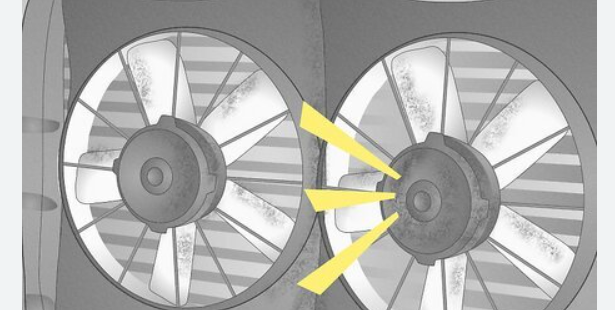
What to Do When Your Cooling Fan Is Loud
Identify the Type of Cooling Fan
To start, determine whether your vehicle uses an electric or mechanical cooling fan. Understanding the fan type is essential for pinpointing the cause of the noise. Electric fans tend to be quieter but may become louder when under heavy load, such as in high temperatures or when the air conditioning (A/C) is working harder. Mechanical fans, powered by the engine, can create more noise, especially if the fan clutch is malfunctioning or the fan blades are damaged.
Inspect the Cool Fan for Obstructions
Next, check the cool fan and the surrounding area for any debris, such as leaves, dirt, or small objects. These can easily become trapped in the fan, disrupting its balance and causing rattling or clattering noises. Even small particles can affect the fan's performance, so clearing away any debris will often help restore quiet, efficient operation.
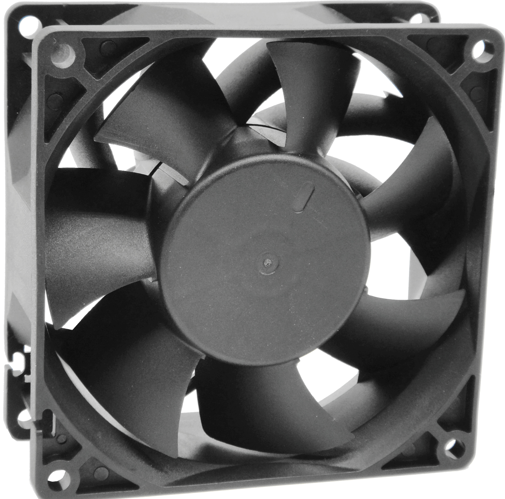
Pay Attention to the Cooling Fan’s Sound
Listen closely to the sound the fan is making—different noises point to different issues:
Growling or Grinding: This sound typically indicates worn fan motor components or damaged bearings. If you hear this, it may mean that the internal parts need to be replaced.
Plane-like Noise: A sound similar to an airplane engine often comes from a mechanical fan clutch that’s too tight or stuck. This causes the fan to spin unnecessarily fast, leading to excessive noise.
Rough, Vibrating Sound: This might indicate a faulty fan motor or damaged blades. If you hear this, the motor could be wearing out, or the blades may be bent or misaligned.
Monitor the Engine Temperature
Check your engine's temperature to ensure it’s operating within the normal range. If the engine is running hot, the cooling fan may be working harder to regulate the temperature, which could explain the increased noise. However, if the engine temperature is normal and the fan is still loud, the issue may lie with a malfunctioning sensor or thermostat, causing the fan to run unnecessarily.
Consult a Professional Mechanic
If the noise persists after you’ve completed these steps or if you can’t identify the source of the issue, it’s time to seek professional help. A mechanic can inspect your vehicle’s cooling system and diagnose any problems with the fan or related components. Addressing the issue early can prevent more severe damage to the engine or cooling system, keeping your vehicle in optimal condition.
By following these steps, you can efficiently diagnose the cause of a loud cooling fan and take the right actions to resolve the issue, ensuring your car operates quietly and smoothly.
Conclusion
A loud cooling fan may seem like a minor issue, but addressing it early can prevent further damage to your vehicle’s engine and cooling system. By understanding the various causes of cooling fan noise—whether it’s high temperatures, debris, or mechanical failure—you can take proactive steps to resolve the problem.



